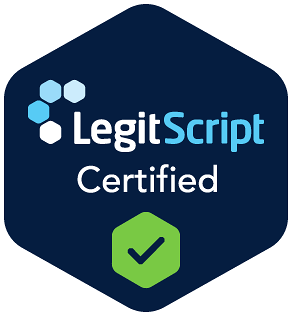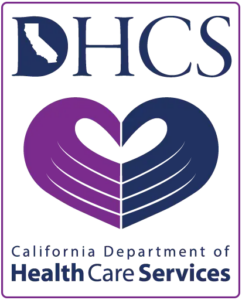Finding quality addiction treatment shouldn’t mean choosing between effective care and financial stability. Orange County offers numerous treatment options, but navigating costs while maintaining high standards can feel overwhelming.
We at Surf City Detox understand that affordable drug rehab Orange County families need must combine proven treatment methods with accessible pricing. The right program balances evidence-based care with realistic payment options.
Understanding Quality Addiction Recovery in Orange County
Quality addiction treatment rests on three foundational elements that distinguish legitimate programs from facilities that promise unrealistic quick fixes. The Joint Commission accreditation (held by top-tier facilities) represents the gold standard in addiction treatment quality and requires facilities to meet rigorous safety and quality standards that exceed basic state licensing requirements. Orange County has evaluated 194 alcohol and drug rehab centers, which makes accreditation your primary filter when you choose treatment.
Evidence-Based Treatment Methods That Deliver Results
Cognitive Behavioral Therapy and Medication-Assisted Treatment form the backbone of effective addiction recovery programs. Studies reveal that 43 percent of people in SUD treatment for nonmedical use of prescription painkillers have a diagnosis or symptoms of mental health conditions, which means quality programs must treat both issues simultaneously. Programs that use evidence-based approaches like CBT show measurably better outcomes than facilities that rely on outdated methods or unproven techniques.
Accreditation Standards That Matter
The Commission on Accreditation of Rehabilitation Facilities accredited approximately 30% of addiction treatment programs in 2020, and these programs served over 15.3 million people annually. CARF accreditation requires facilities to undergo comprehensive evaluations of staff qualifications, treatment protocols, and safety measures (including regular reassessments to maintain status).
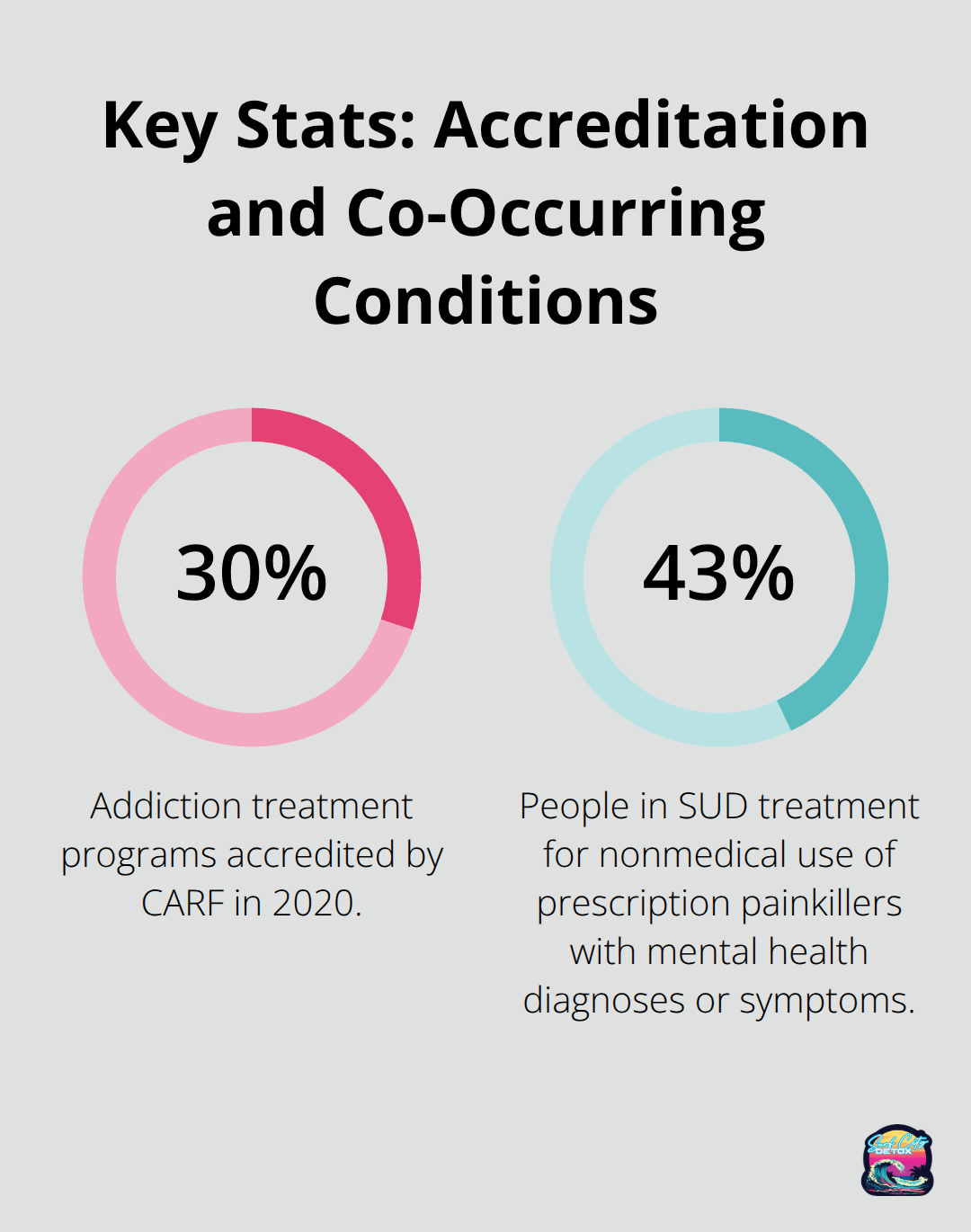
Third-party insurance companies commonly require CARF or Joint Commission accreditation for reimbursement, which means accredited facilities have already passed financial scrutiny from major insurers who analyze treatment effectiveness data.
What Quality Treatment Actually Includes
Effective programs address co-occurring disorders since adolescents with substance use disorders have especially high rates of other co-occurring mental disorders, including mood and anxiety conditions. Quality facilities provide 24/7 medical supervision during detox (typically lasting 3-7 days) and offer residential programs that run a minimum of 28 days. These programs integrate individual therapy, group sessions, and family counseling rather than relying on a single treatment approach.
The financial aspect of quality care becomes the next consideration, as effective treatment must remain accessible to families who need it most.
Affordable Drug Rehab Options Without Compromising Care
Insurance coverage eliminates the biggest barrier to quality addiction treatment, with many providers covering up to 100% of treatment costs after you meet deductibles. The Affordable Care Act requires non-grandfathered health insurance coverage in the individual and small group markets to cover essential health benefits, including mental health and substance misuse services, while Medicare and Medicaid also provide access to various addiction treatment services. Most Orange County treatment centers accept major insurance plans (including Aetna and BlueCross BlueShield), which makes verification your first step. Contact your insurance provider directly or use free verification services that treatment facilities provide to understand your exact coverage before you start treatment.
Smart Payment Strategies Beyond Insurance
Treatment centers offer payment plans and finance options that make quality care accessible even without full insurance coverage. Residential treatment costs vary dramatically from under $10,000 to luxury programs that exceed $80,000, but intensive outpatient programs provide effective alternatives at lower costs. IOPs are an important part of the continuum of care for alcohol and drug use disorders and are as effective as inpatient treatment for most individuals while they still deliver structured support and evidence-based treatment. Many facilities provide scholarships or fees that slide based on income for individuals without insurance, and some accept payments through medical finance companies that offer low-interest loans specifically for healthcare expenses.
Treatment Level Cost Analysis
Outpatient programs offer the most cost-effective approach while they allow you to maintain daily responsibilities, with costs that typically range from $3,000 to $10,000 for a complete program. Residential treatment that requires 28-90 days provides 24/7 medical supervision at higher costs but delivers better outcomes for severe addictions or co-occurring disorders. Detox programs that last 3-7 days represent the most affordable entry point into treatment, and many insurance plans cover detox services completely since medical supervision prevents dangerous complications during withdrawal.
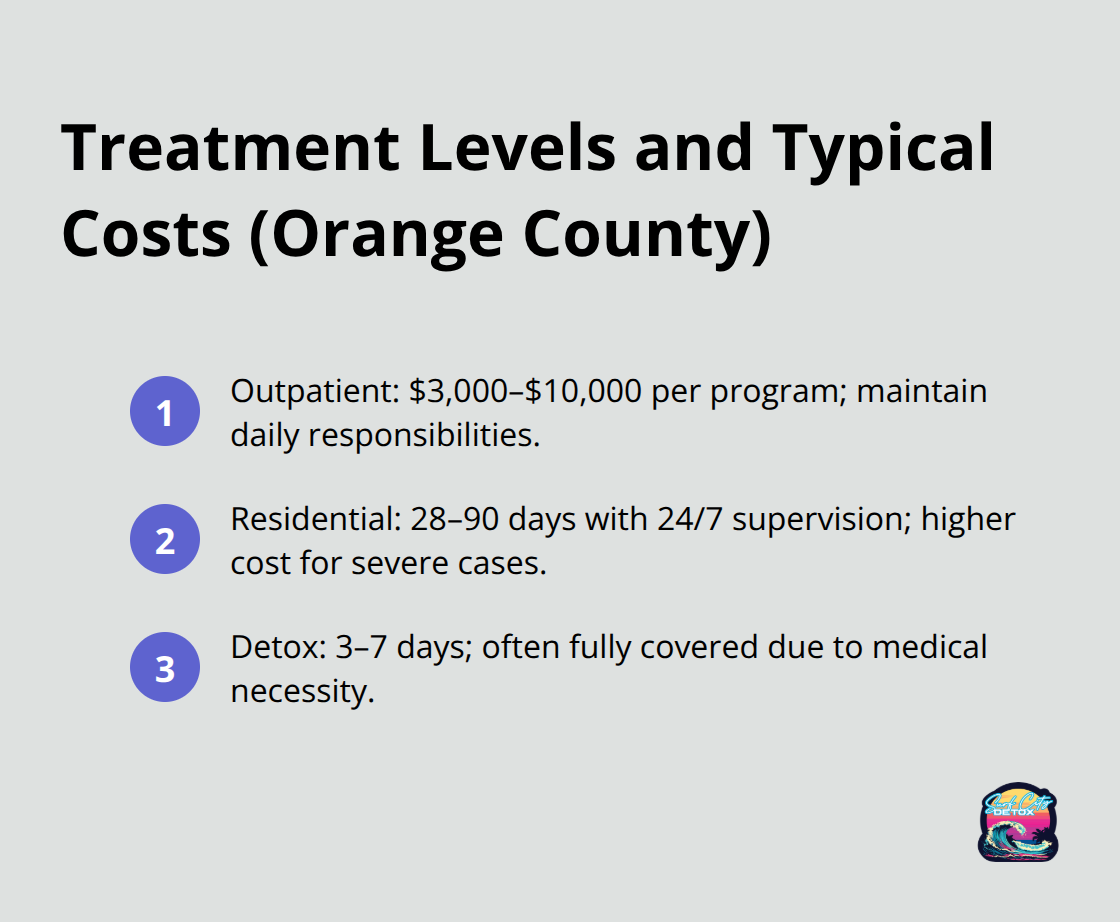
Financial Assistance Programs Available
Orange County provides financial assistance and affordable treatment options for low-income individuals who seek rehabilitation services. The Community Assistance Recovery Empowerment initiative provides support and recovery services for individuals who grapple with addiction, while county programs emphasize prevention through community outreach. Some facilities offer work-study programs where clients contribute to facility operations in exchange for reduced treatment costs (though availability varies by center).
Once you understand the financial landscape, you need to evaluate which treatment centers actually deliver the quality care they promise.
Evaluating Trustworthy Treatment Centers
Direct questions reveal the quality and legitimacy of treatment facilities faster than marketing materials ever will. Ask potential facilities about their specific accreditation status from The Joint Commission or CARF, their licensed medical staff credentials, and their exact treatment protocols for your specific substance use disorder. Request detailed information about their success rates, average length of stay, and what happens if treatment needs extension beyond the initial timeframe.
Essential Questions That Expose Quality
Legitimate facilities provide transparent answers about costs, insurance verification processes, and their specific evidence-based treatment methods like CBT or MAT. Ask about their medical supervision protocols during detox and whether they maintain 24/7 clinical staff on-site. Quality centers explain their dual diagnosis capabilities and how they address co-occurring mental health conditions that affect approximately 21.5 million adults in the United States.
Red Flags That Signal Poor Care
Several warning signs indicate facilities that prioritize profits over patient outcomes. High-pressure sales tactics, promises of guaranteed recovery, or facilities that accept clients without proper medical evaluation represent serious concerns. Treatment centers that lack proper licensing from the California Department of Health Care Services or refuse to provide accreditation documentation should be avoided completely.
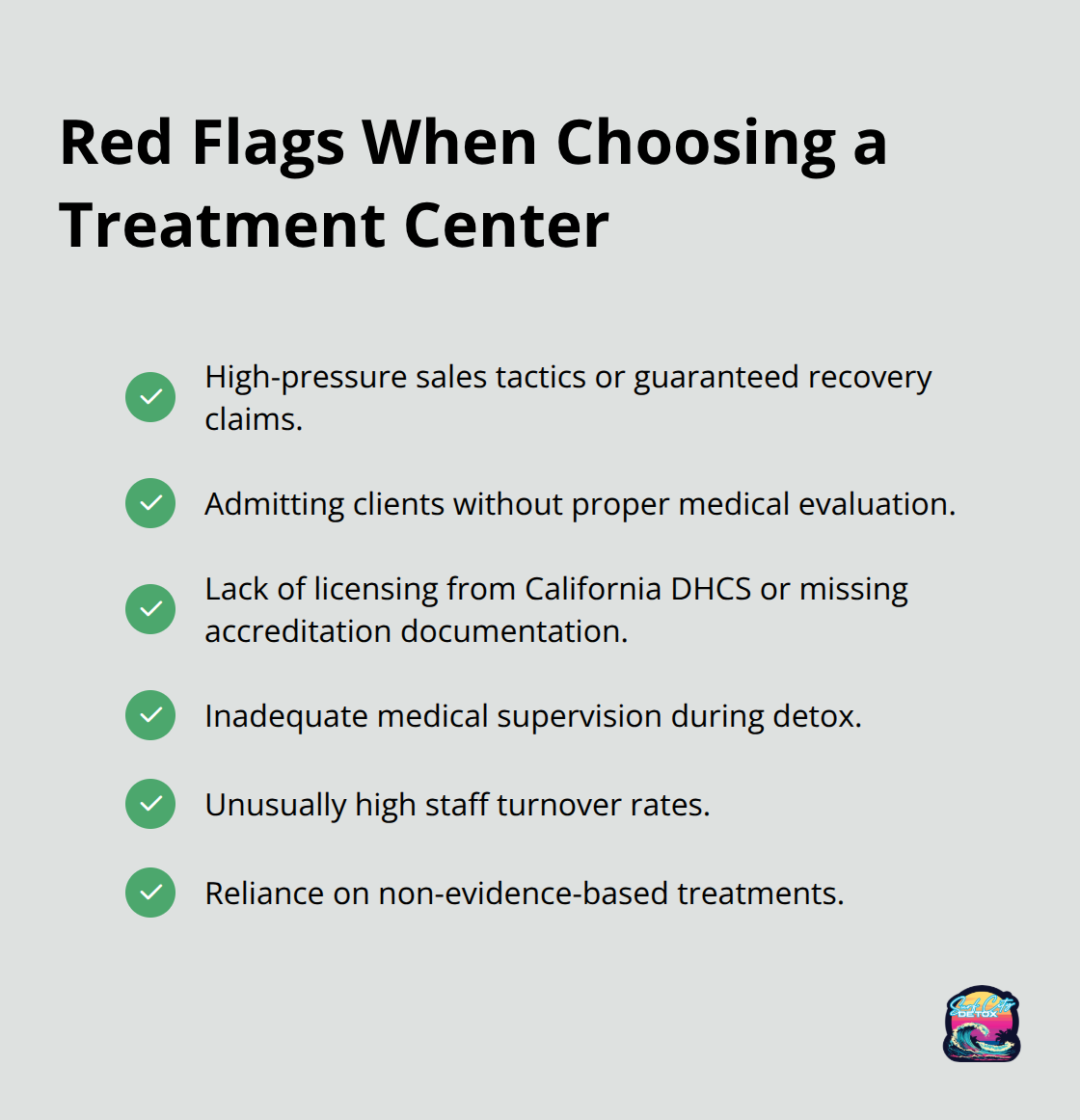
Facilities with unusually high staff turnover rates, inadequate medical supervision during detox, or programs that rely primarily on non-evidence-based treatments indicate poor quality care. Centers that cannot provide specific success rate data or refuse to discuss their treatment protocols openly demonstrate lack of transparency.
Verification Methods That Work
Contact your state licensing board directly to verify facility credentials rather than trust website claims. The California Department of Health Care Services maintains public records of licensed facilities, violation history, and current accreditation status. Check with The Joint Commission or CARF websites to confirm accreditation claims (these organizations provide searchable databases of accredited facilities).
Request references from recent graduates or families who completed treatment, and verify staff credentials through professional licensing boards. Insurance companies also maintain lists of approved facilities that meet their quality standards, which provides an additional verification layer for treatment center legitimacy.
Final Thoughts
Quality treatment prevents costly relapses and provides the comprehensive support needed for lasting recovery. Research consistently shows that accredited facilities with evidence-based treatment methods produce better outcomes than programs that cut corners on clinical standards or staff qualifications. Programs that address both addiction and co-occurring mental health conditions reduce the likelihood of multiple treatment episodes, which makes quality care more cost-effective over time.
The first step toward recovery requires confidence in your treatment choice, and quality care directly impacts long-term success rates. Orange County offers numerous treatment options, but accredited facilities with proper medical supervision and dual diagnosis capabilities deliver the results families need. Insurance coverage makes quality treatment accessible, with many providers covering up to 100% of costs after deductibles.
We at Surf City Detox provide trusted affordable drug rehab Orange County residents can rely on through our accredited programs and integrated approach. Our medically supervised detox, residential treatment, and dual diagnosis services operate under one roof in Huntington Beach (eliminating the need to transfer between facilities). We accept major insurance plans and work with families to verify coverage, making quality addiction treatment accessible when you need it most.

